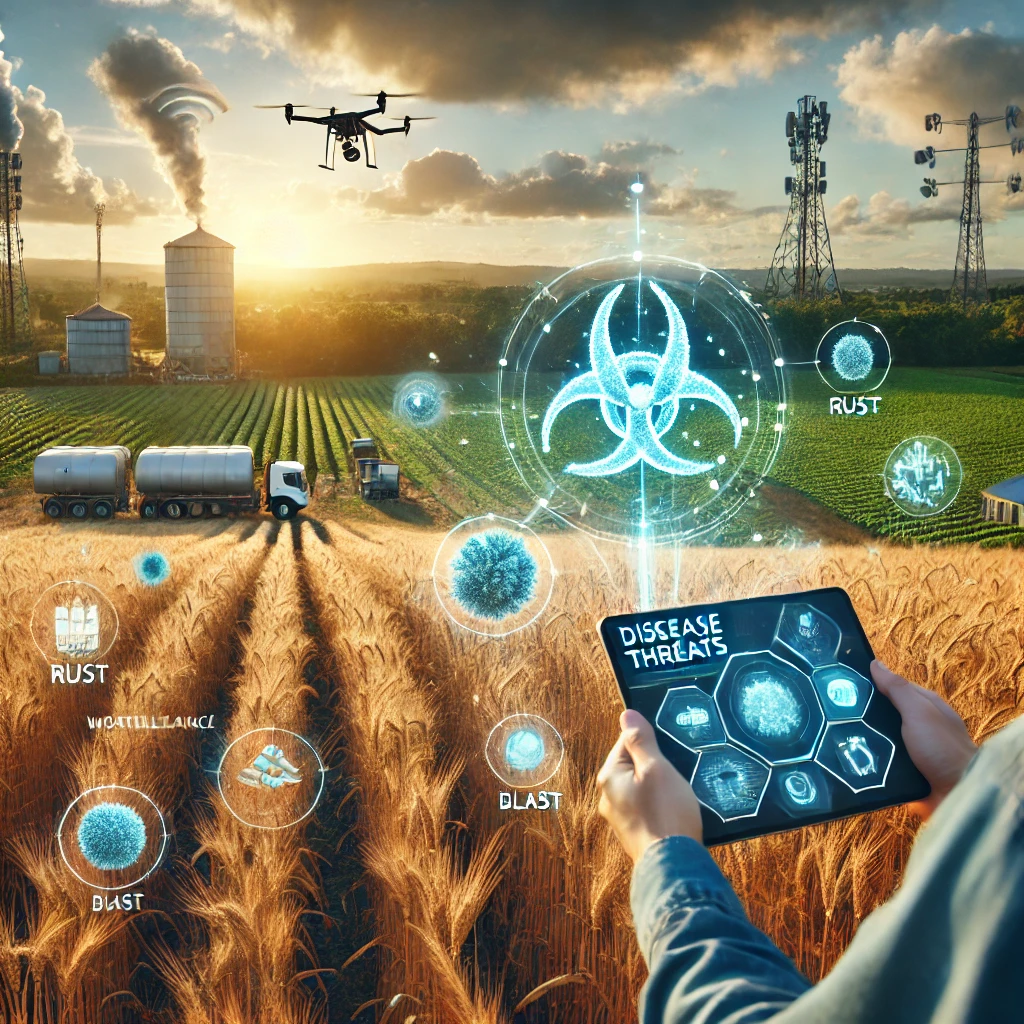Smart surveillance: How technology is shielding farmers from deadly wheat pathogens
Wheat DEWAS is more than a technological achievement - it is a lifeline for millions of farmers and a critical tool in the global fight for food security. By providing accurate, timely, and actionable insights, the system empowers farmers to protect their crops and livelihoods against devastating diseases.

Wheat, a cornerstone of global food security, faces mounting threats from devastating fungal diseases that jeopardize crop productivity and the livelihoods of millions of farmers worldwide. Among these threats, rust diseases and wheat blast stand out as particularly destructive, with the potential to obliterate entire harvests.
To combat these challenges, the Wheat Disease Early Warning Advisory System (Wheat DEWAS) - one of the world's largest crop pathogen surveillance systems - emerges as a transformative project, leveraging cutting-edge analytics and global collaboration to safeguard wheat production in food-vulnerable regions of East Africa and South Asia.
The need for proactive disease management
Pathogens such as rust and wheat blast are formidable adversaries for wheat farmers. Rust diseases - stem, stripe, and leaf rust - are highly variable and capable of producing trillions of wind-borne spores that travel across continents, unleashing devastating epidemics. A 2015 study revealed that rust diseases caused losses exceeding 15 million tons of wheat annually, amounting to nearly $3 billion globally. Meanwhile, wheat blast, caused by Magnaporthe oryzae Tritici, spreads rapidly through infected seeds and short-distance dispersal, rendering farmers in Bangladesh, Zambia, and other vulnerable areas defenseless against sudden outbreaks.
The stakes are high. For farmers in resource-poor regions, a single outbreak can mean the loss of food security and critical income. Addressing these threats requires innovative and scalable solutions that empower farmers with timely, actionable information to protect their crops.
Wheat DEWAS: An early warning system for wheat pathogens
Wheat DEWAS represents a groundbreaking response to these challenges. Developed by a global consortium of 23 research and academic organizations, including CIMMYT and Cornell University, the project builds upon decades of investment in pathogen surveillance, modeling, and diagnostics. Led by David Hodson and Maricelis Acevedo, Wheat DEWAS integrates advanced technologies to create a scalable, open system that provides near-real-time, model-based risk forecasts for governments and farmers.
The system’s capabilities are rooted in long-term research on rust pathogen behavior, allowing it to predict outbreaks and track the evolution of novel strains. This information translates into early warning alerts, enabling governments to prepare response measures and farmers to take proactive steps to mitigate damage. The result is not only a defense against crop destruction but also a strategy to enhance food security in some of the world’s most vulnerable regions.
Wheat DEWAS focuses on two of the most formidable fungal pathogens - rust and blast. Its innovative approach addresses the hyper-variable nature of rust diseases, which can rapidly adapt to resistance mechanisms. By leveraging weather data, pathogen surveillance, and advanced modeling, the system offers precise forecasts of when and where outbreaks are likely to occur. This empowers farmers to implement preventative measures before diseases reach their fields.
The project also tackles wheat blast, a relatively newer yet rapidly spreading threat. Wheat blast’s ability to shrivel grains within a week of infection leaves farmers with little time to act. Wheat DEWAS provides critical early alerts, allowing farmers and policymakers to respond swiftly to outbreaks and minimize losses.
A future of scalable, integrated solutions
The Wheat DEWAS project stands on the foundation of existing early warning prototypes developed for East Africa and South Asia. However, its ambitions extend far beyond. The project aims to establish a globally integrated and sustainable surveillance system that continuously evolves to address the ever-changing threat of plant pathogens. By doing so, it strengthens the capacity of countries to respond proactively to transboundary wheat diseases.
The open and scalable nature of Wheat DEWAS ensures its adaptability and relevance as wheat pathogens evolve. By prioritizing knowledge-sharing, global collaboration, and sustainability, the system sets a new benchmark for crop disease management. In a world where climate change and pathogen evolution threaten global food systems, Wheat DEWAS exemplifies the power of science and innovation to protect agriculture and secure livelihoods.
A proactive shield for wheat farmers
Wheat DEWAS is more than a technological achievement - it is a lifeline for millions of farmers and a critical tool in the global fight for food security. By providing accurate, timely, and actionable insights, the system empowers farmers to protect their crops and livelihoods against devastating diseases. As it scales and integrates into global agricultural practices, Wheat DEWAS has the potential to revolutionize how the world anticipates and addresses crop threats, ensuring a resilient future for wheat production and the communities that depend on it.
- FIRST PUBLISHED IN:
- Devdiscourse










